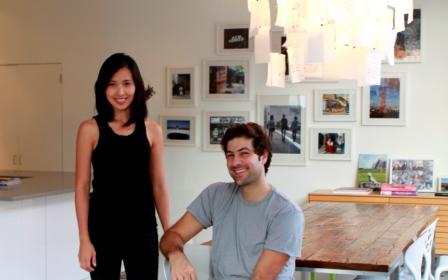
EXCLUSIVE BY JAMES WILKINSON
Global apartment renting company Roomorama is seeing significant growth across the region, particularly in Australia, for both bookings and leasing.
Roomorama, started in 2009 by New Yorkers Jia En Teo and Federico Folcia, is a global leader in short-term accommodation and boasts a portfolio of 30,000 managed properties in 500 destinations across the planet.
Speaking exclusively to HM on a recent trip to Sydney, Jia said the number of properties in Australia had reached 750. That number spans the nation, but is primarily concentrated around Sydney and Melbourne.
“Australia is growing quite fast for us,” Jia said, adding that the number of unique visitors to the company’s website from Australia is now 30,000 per month, representing 10% of their total visitors. “And in fact, the growth in Asia-Pacific is much faster than the rest of the world.”
Jia said the average length of stay for bookings in Australia was 12 days, three more than the global average of nine – significantly longer than the average for hotels across the country and according to Roomorama, somewhat cheaper.
“People that are using our site are staying a lot longer than hotels,” she said. “They are staying in Paris for two weeks and London for five or six nights.”
The Roomorama team acknowledge that the apartments that are available for short-term rentals don’t offer the facilities of hotels and suit travellers looking for unique neighbourhood experiences.
“We are about 30-40% less than hotels in cities like London and New York… for example, you’ll get apartments for $200 less in Manhattan,” Folcia said. “But our (guests are) looking for an experience and the exclusivity rather than the luxury.”
From a company that started with Jia and Federico’s New York apartment in 2009, Roomorama now boasts some solid numbers. The overall number of room nights booked since it was founded is estimated at 300,000, while in 2011 alone the number has so far hit 150,000.
By February 2012, the company expects that significant growth to continue by hitting 36,000 properties globally, well up from the 18,000 a year ago.

